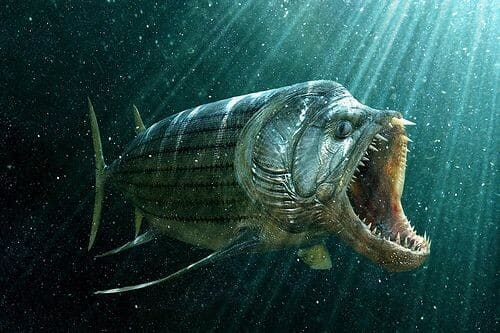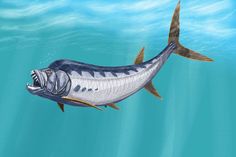70 Million-Year-Old Giant Fish Fossil Unearthed in Argentine Patagonia

A team of researchers has announced the discovery of a giant fish fossil that existed 70 million years ago in the area of Patagonia, Argentina. According to Argentinian archaeologists, “they have found the remains of a predatory fish more than six meters in length”. The discovery was published in the scientific journal Alcheringa: An Australasian Journal of Palaeontology.

Fossil remains of the Xiphactinus fish – similar to those found in Argentina – have been discovered near Lake Colhue Huapial, about 1,400 kilometers south of Buenos Aires. The fish “lived in the Patagonian Sea at the end of the Cretaceous period, when temperatures there were much cooler than they are now,” according to the team’s statement.

“Fossils of this carnivore with sharp teeth and terrifying appearance were found near Lake Colhue Huapial,” the statement said. This fish belongs to the genus Xiphactinus, “among the largest predatory fish to have existed in the history of the Earth”.

“Its body was thin and light and ended in a giant head with needle-sharp fangs, several centimeters long,” said Julieta de Pasqua, one of the study’s authors.

Previously, the Xiphactinus fish was only found in the northern hemisphere, although an example has recently been discovered in Venezuela. Patagonia is one of the most important sources of dinosaur fossils and prehistoric species.

This discovery opens the door to understand more about the biodiversity and environment that existed in the prehistoric world. This giant fish fossil is a valuable evidence of life in the ancient ocean period, and at the same time



